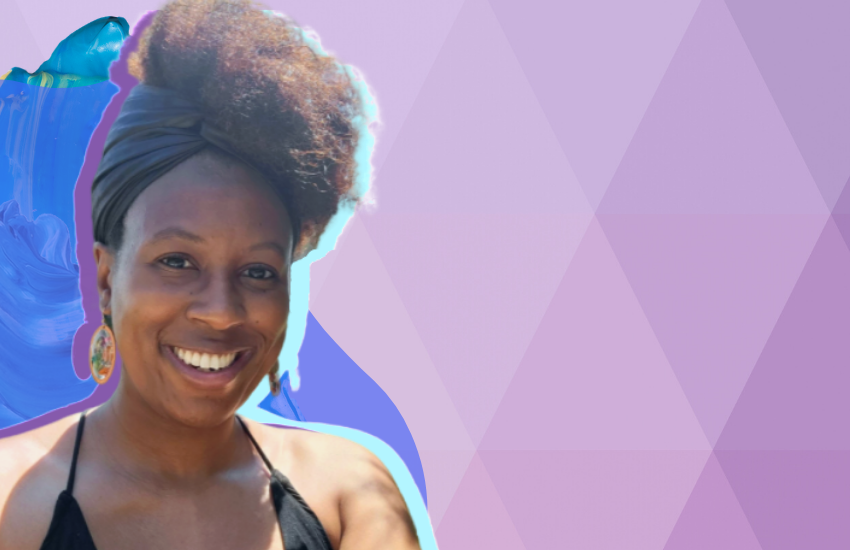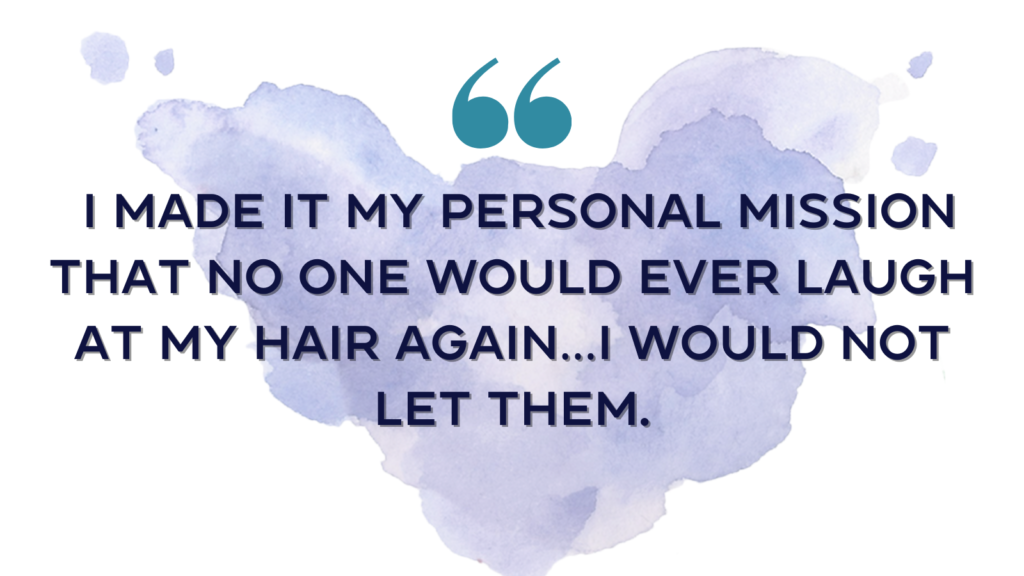Self-identifying Black Women in STEMM: Reclaim Your Crown
The Director of Outreach at 500 Women Scientists & the Co-Founder of the Black Women’s Collective speaks out about hair discrimination and being an African American woman in STEMM.

The Director of Outreach at 500 Women Scientists & the Co-Founder of the Black Women’s Collective speaks out about hair discrimination and being an African American woman in STEMM.

This article was written by Nicole Williams and edited by Farah Qaiser.
Unmanageable.
Nappy.
Unruly.
Unprofessional.
These are some of the words that get associated with Black women’s hair.
The best feeling in the world is not caring about what anyone thinks. I wake up and uncoil my twists, spritz some water on them, and tie a colorful wrap on my head to match my outfit. But I didn’t always feel this way. For many Black women, the thought of wearing our natural hair in the workplace or in schools instills a sense of shame and fear.

Every Black girl has a personal experience growing up that determines their hair journey.
Mine was at the public swimming pool.
I was, and still am a lover of books, and during the summer, I participated in my local library’s reading program. The reward for reading a certain number of books was a pool party. I remember sitting on the floor with my mother who had spent a few hours braiding my hair for the party. I walked in with neat cornrows, and hours later, left with a wild afro and a bruised ego. I could hear the other children around me, whispering and laughing. At that moment, I felt ashamed of my hair and unwelcome in that space. I hate to admit this, but I also remember looking on the ground for a hair band or scrunchie to tame my wild hair. I never wanted to go through that experience again; therefore:

As soon as my mother let me, at age 14, I asked to get a relaxer. I wanted nothing to do with my textured hair. I just wanted to fit in and be accepted.
Time and time again, Black women are overlooked, ignored, and underpaid in the science, technology, engineering, math, and medicine (STEMM) fields. We also deal with the policing of our bodies, our hair, our clothing, and our tone, as we enter spaces with oppressive and racist standards of professionalism. The way that we dress and wear our hair continues to be problematic. We are continuously singled out for not conforming to the “normal conservative dress norms”.

As I reflect on my own academic journey and early career as a marine scientist, there was no one that looked like me. I was the only African American woman in my class who graduated with a Bachelor’s degree in Biology. In addition to this, I was the only Black woman in my Master’s of Marine Science cohort. I thought that if I looked like all of my white classmates who had straight hair, then I would be treated equally.
“When a Black woman chooses to straighten her hair, it should be a personal preference, not a burden to conform to a set of criteria for which there could be adverse consequences.”
Ashleigh Shelby Rosette: a management professor and a senior associate dean at Duke University’s Fuqua School of Business

As the Director of Outreach at 500 Women Scientists, a global grassroots social justice organization, I want to call for more attention to be directed to speaking up about, and addressing, hair discrimination in the STEMM fields. In the United States, hair discrimination is defined as the “unjust social and economic treatment of historically underrepresented groups by the dominant white culture based on hair.”

Black women are often told that having straight hair is beautiful; and that textured, natural, or curly hair is unprofessional or nappy. A 2019 study found that African American women suffer the most from hair discrimination in the U.S., and were 1.5 times more likely to be sent home from work. The study also found that 80% of African American women felt the need to straighten their hair in order to assimilate at work.
Hair discrimination also applies to the STEMM fields, which continue to have lower numbers of Black women. According to a 2018-2019 study by the American Institute of Physics, Black students in physics departments are likely to experience microaggressions on a daily basis, including questions around their appearance.
My hair is a part of who I am, it is my identity!
Here is a list of resources to help end hair discrimination, as well as additional sources illustrating the connection between hair and identity in the Black, Indigenous, People of Color (BIPOC) culture.


“Don’t remove the kinks from your hair! Remove them from your brain.”
Marcus Garvey
Nicole Williams is the Director of Outreach at 500 Women Scientists and the Co-Founder of the Black Women’s Collective.
